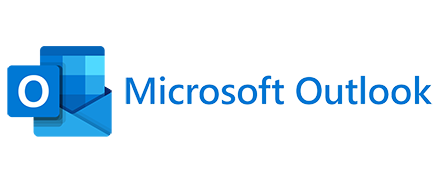

David Grady is no stranger to bad meetings.
His TEDTalk, “How to save the world (or at least yourself) from bad meetings” is six minutes of joyful empathy for the moments we’ve all experienced too many times at our places of work: meetings, appearing without context or agendas, flooding our calendars and sapping our energy and morale. As of this post, the talk has nearly 2.5 million views.
It’s turned David into something of a corporate crusader, aiming to fix people’s crappy work calendars one wasteful meeting at a time. Moreover, David is keenly aware of the impact these things have on the organization as a whole -- the ways in which poor meeting culture disintegrates the fabric of a company, reduces its ability to innovate and produce effectively, and ultimately makes it an unpleasant place to work.
Given our mission at Reclaim -- to help busy product leaders take back time for doing their best work -- there’s obviously a lot of like-minded thinking here. So we wanted to get David’s take on how things have changed (or not) since he did his first talk in 2014, where he sees this problem going, and what we as managers can do to combat it.
Your talk introduces a really interesting term -- MAS, or Mindless Accept Syndrome -- what is MAS? Why do you think it’s so common in the modern workplace?
I honestly think that accepting a meeting invitation without thought or hesitation is a reflex. A meeting invitation arrives in your inbox and you just want to get back to what you were working on, so you accept it and tell yourself you’ll evaluate its relevance later. But you never do. You just go. That’s MAS. We’re just too damned busy to take a minute to ask ourselves: “Do I really need to give this person an hour of my time?” And it’s a vicious cycle. We have so many back to back meetings that we have no time to be thoughtful about when and why we meet. In many organizations it’s a runaway train.
What tools or techniques do you use to avoid MAS?
It’s a little passive-aggressive, but when I get a meeting invitation that has no details -- no agenda and a vague subject line -- I drop a note to the meeting organizer and ask them “Hey, can you email me the agenda or tell me the goal of this meeting so I can show up prepared?” That usually gets the point across. You do that often enough and maybe people will start to change their behavior. Also, I look to see who else is invited. If half my team is also invited, I’ll suggest that we send one representative from the team.
Meeting organizers need to remember that you need SVP approval to spend more than $100 on something, so you should think about the cost of having 12 people at one hour meeting. And meeting invitees have the same obligation to treat their time as money. You don’t go on a shopping spree at the mall with the corporate card, but too many of us look back at our day or our week and realize it was a meeting spree.
I do think there is a ton of room for software to make this better. The calendar hasn’t really gone through much of an overhaul in the last 10 years and there is a dire need for managers in particular to have a system that would help them to manage this kind of social behavior (and the tough scheduling math that comes with it) on a week-to-week basis.
Do you think meetings are inherently bad? Or are there bad meetings and good ones?
We’re nothing without collaboration. It’s how we collaborate that makes the difference.
When your default is to call a one hour meeting just to “catch up,” “reconnect” or “get synced,” it should tell you that you aren’t collaborating effectively as an individual or as an organization. I love a good meeting. The key word is “good.” That means the meeting organizer took a few minutes to be thoughtful about why they’re calling the meeting, who they invited, and that they’ve communicated to you the role you’ll play at the meeting. Not enough people do that, so it’s on the invitee to take control and not just reflexively say “Yes, I’ll be there.”
How do you think meetings end up costing the organization? What about the individual?
There have been so many studies published about the financial ramifications of bad meetings, and the number is always in the billions for “lost productivity.” I don’t doubt that. But I’m more interested in the human cost. There’s a heavy emotional and physical toll when you feel like all you ever do is go to meetings that feel like they could have been an email. It’s draining and it’s corrosive.
Whenever I speak at an event about this topic, people tell me that just talking about their frustrating calendars is cathartic. People literally get emotional when you tell them that it’s not just them, that meeting overload is common. When you change your mindset and give yourself permission to manage your time more effectively, that’s liberating. Having a tool like Reclaim to help you follow through is really exciting.
Do you see any correlation between the size of a company or the role a person has and the number of meetings that they end up having on their calendar?
First, let me say this: a lot of people have pushed back on the central idea of my TEDTalk, which is that you are allowed to say “maybe” to a meeting invitation. More than a few people have pointed out that when you’re a junior member of the team, or when the meeting invitation comes from a very senior person, that it’s unrealistic to expect a person to directly challenge the meeting organizer about why the meeting is being called. I get that. They’re right. We live in the real world. But I bet that the vast majority of meetings on your calendar are recurring meetings, committee meetings, “catch up/sync up” meetings. So if you can reclaim even one hour a day by more thoughtfully managing your time, imagine how you’d feel by Friday at 5?
But to answer your question - I’ve done workshops with companies big and small and have talked with leaders in all sorts of industries, and the problem is pervasive. You’d think that smaller companies would be more agile in their collaboration, but there’s an epidemic of bad meetings out there in companies of all sizes.
How have things changed since your original talk in 2014? Are we getting better or worse?
Every now and then someone will post a link to my TEDTalk on social media, and that’s encouraging because it means that the message still resonates. People want to hear that it’s okay to guard your time like gold instead of being polite and giving it all away to your co-workers. Every time someone shares the link, they’re being a change agent. It means they buy into the idea of “No MAS,” and that they want others to, as well. So on some level I think things are getting better. Real change comes from the bottom, one person at a time.
But then I look at the comments on my YouTube video from 2010 on pointless conference calls and nine years later, people are still writing “This is my day, every day.” So I think we have a long way to go.
Follow David on Twitter and check out his TedTalk to hear more about MAS.
Looking to make your calendar better? Sign up for Reclaim here.
Productivity Trends Reports
AI calendar for
work & life
Auto-schedule focus time, meetings, & breaks.
Create your free account →CONNECT YOUR CALENDAR
































